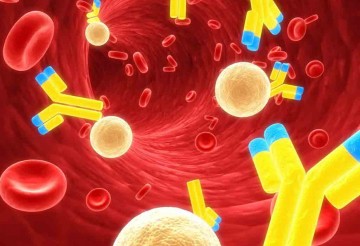Nowadays in modern society everyone is experiencing stress in different situations. Stress is the result of too much physical and/or psychological strain. The body protects itself by reacting according to a standardised reaction pattern: the stress response. Stress can be induced by too much work in too less time, anxiety, depression and many more situations. Too much stress is detrimental to human health. Short term stress leads to suppression of the immune system resulting in a higher vulnerability of falling ill, increase in heart rate, increased blood pressure and inhibits insulin production which leads to increased availability of energy. In the long term stress leads to decreased cognition, worsened thyroid gland function (important for metabolism), accumulation of body fat which has implications for cardiovascular health and ‘burn-out’. Moreover, stress leads to accelerated ageing.
What can we do to overcome daily stress?
 Researchers in the USA have unravelled that relaxing the forehead and muscles leads to a 50% reduction in stress hormone levels, so this is something one should ought to keep in mind all day to reduce stress. Simple breathing techniques (pranayama) are another excellent way to cope with stress.
Researchers in the USA have unravelled that relaxing the forehead and muscles leads to a 50% reduction in stress hormone levels, so this is something one should ought to keep in mind all day to reduce stress. Simple breathing techniques (pranayama) are another excellent way to cope with stress.
Stress is a result of activation of the ‘flight or fight’ reaction (sympathetic nervous system). By simple breathing exercises we can activate the counterpart of the ‘’flight or fight’’ reaction (nervus vagus, parasympathic nervous system), which dampens the stress response. Researchers in the UK have found that exhaling for minimally five seconds is sufficient to stimulate the nervus vagus and gain the maximum benefit. The advantage of relaxing the forehead and breathing exercises is that everyone can apply them without needing someone else and they can be performed any time, any place!









